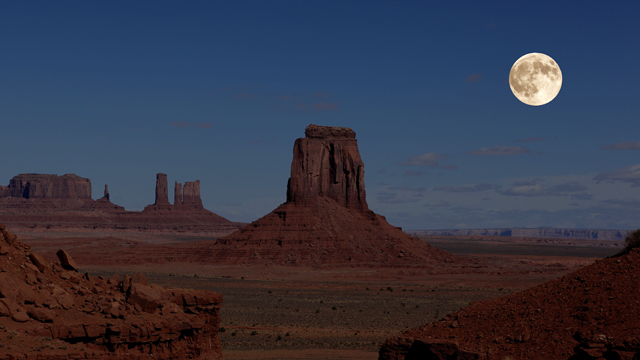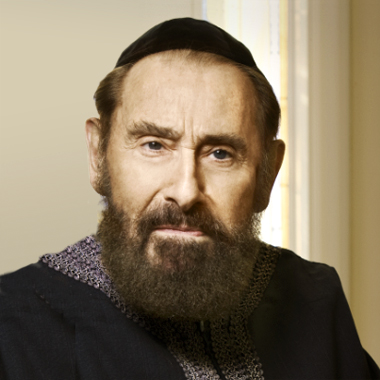
I have attempted for a long period of time now to explain the true purpose behind each of our holidays. This has become necessary as the idea of holidays, as represented by conventional religion, has veered astray of the original intent presented on Mount Sinai.
The holiday of Pesach (Passover), the biblical story concerning the Exodus from Egypt, is one that has become filled with contradiction, misinterpretation and, unfortunately, corruption.
"What is the relevance of these stories today?"
Let me say from the very outset that scripture strongly indicates the Israelite never had any intention of leaving his beloved Egypt. This was stated repeatedly throughout that period of forty years when the Israelites sojourned in the wilderness after having left Egypt. (Numbers, Ch. 11:18, Ch. 20:5, 21:5).
Therefore, to view Pesach as a celebration of time in which the Israelite joyfully left bondage and became free is a complete distortion of the truth. To the contrary, the Israelites were literally pushed out of Egypt by Pharaoh after he witnessed all the firstborn children dying before his very eyes.
Can any of us imagine that upon liberation from a POW camp the prisoner would insist upon remaining in those camps? Could we possibly accept that those survivors would desire to return because they perceived their former residence as a wonderful place to spend the rest of their lives?
Scripture states that even though Pharaoh demanded the Israelites leave Egypt immediately, they did not actually leave until the next morning. Could we possibly assume from this that they were in no hurry to go?
And if that is so, how can we commemorate the holiday of Pesach as a remembrance of the difficult times the Israelite encountered in Egypt when, in fact, they appeared in no particular rush to leave that “difficult” environment. Still, this is the story that has been perpetuated over the past 3400 years.
We can either assume that over this period of time ignorance of scripture was so prevalent that the Israelite simply did not know the truth about his own origins, or that there was some concerted effort to cover up the true meaning of this particular holiday, relegating it instead to a remembrance of so-called “freedom from bondage”.
Nothing could be further from the truth. The question Kabbalah has always raised about the narrations, stories and tales of the Bible (Torah) is:
What is the relevance of these stories today?
The modern Jew, Christian, Muslim and, for that matter, adherents of all other major religions are now asking this very same question: What do these stories mean for me today? What is their relevance toward my own well being?
For too long, this question has fallen on deaf ears, and as a result, has brought about a dichotomy between a person’s religion and the problems which occur in his or her daily lives. In this Age of Aquarius, freethinking men and women are no longer content to accept a dogmatic approach toward religion. An approach which, in effect says, “accept and do not question.”
The Zohar, some 2000 years ago, recognized this upheaval would come in the Age of Aquarius and predicted that people would not accept the doctrines of religion without fully comprehending their meaning and relevance to their own life.
The Zohar urged the people of the world to question and ask why, notwithstanding the possibility that there might not be any answers to their questions. The Zohar makes it very clear that one is not to accept dogmatic principles without a very precise explanation of the meaning behind those principles; that one must understand the relationship between these principles and their practice in everyday life; and that we must come to know exactly how the observation of these principles will improve our mental and physical well-being.
We have always assumed that when the tenth plague, the “slaying of the firstborn,” was visited upon the Egyptians, the Israelites were joyous and happy. They were witnessing the destruction of their so-called enemies, the people who had enslaved them.
Yet, the Egyptians were also part of humanity. From a spiritual perspective, can we consider this act of God to be an accepted principle of the universe? To presume that murder is permissible because it affected others and not the Israelites would be tantamount to saying that any people might destroy another as long as they are deemed an enemy.
Something is clearly missing in this interpretation of the Pesach event. And while unrelated, there are many other instances in the Torah in which the Israelites were told to destroy men, women and children (Numbers, Ch. 31:17).
In light of these obvious contradictions, the Zohar states that the holiday of Pesach must contain a more subtle and meaningful description of what was really going on in Egypt.
The first aspect of this, the concept of freedom from Egyptian bondage really refers to an internal, non-physical bondage.
"The concept of freedom from Egyptian bondage really refers to an internal, non-physical bondage."
The Zohar states that what was taking place in Egypt was the perpetuation of the Desire to Receive for the Self Alone. The Egyptians were merely a metaphor for the forces that were entrusted with this power. They were, in actuality, part of the Satanic force that dominated the entire world with chaos. What “freedom from Egypt” meant, was to break the chains that held the world captive to Desire to Receive for the Self Alone.
Satan comes from the Aramaic word suh-tan, and the Zohar describes it as a force, not a person. There are essentially only two forces in this world. This non-physical dark force, symbolically represented by the Egyptians, and the Desire to Receive for the Sake of Sharing, represented by the Israelites.
The term “Israelites” included all other peoples who, by their very nature, were sharing individuals. These others were also enslaved by the Egyptians, which again refers to the dominion of Satan over all those who have an energy-intelligence of sharing.
The dominion of Satan perpetuated the existence of chaos. Chaos could only exist where there was an overwhelming energy intelligence of the Desire to Receive for the Self Alone. As long as the world could not eliminate this negative aspect of its nature, the limitations of time, space and motion, pain and suffering would remain a part of the human landscape.
This brings us now to the true purpose of Pesach.
Pesach, the 15th day of the lunar month of Aries, was established at the time of Creation. At that moment, the awesome energy of the Lightforce of the Creator, which is a sharing energy, was released into the cosmos. Were this energy to be tapped by the people of the earth, sharing energy would be the dominant force of this world and the energy of darkness, which embodies chaos, pain and suffering, would come to an end.
Satan, or the energy of darkness, cannot coexist with the Lightforce of the Creator. When people exhibit the Desire to Receive for the Self Alone aspect of their nature, they demonstrate desire, which is contrary to the Desire of the Creator.
The Lightforce of the Creator then takes a backseat in deference to the wishes of the people, for there is no coercion in matters of spiritual energy.
After the passing of 2,000 years, with no relief in sight for humanity, God exercised the opportunity established during Creation. The Israelites of that period either could not or would not alter their intrinsic nature of Desire for the Self Alone.
The objective of Pesach was to infuse the universe, on the 15th day of the lunar month of Aries, with the infinite energy of sharing. Moses provided the Israelites with the tools to tap this awesome energy, available only on the night of Pesach.
This Lightforce energy was so overwhelming that the darkness of Satan, (chaos, pain and suffering) immediately withdrew. The force’s back was broken. The world could now enjoy true freedom from chaos. The metaphorical shackles of Egyptian bondage were broken.
The purpose of Pesach is to once again take advantage of the Lightforce energy, which is available on the 15th day of the month of Aries, to interrupt the dominion of darkness and chaos over our lives. According to the kabbalistic dictum of “no disappearance,” once an event takes place in the metaphysical realm, it becomes available to us each and every year.
We can now understand why chaos has always been present in the lives of all the peoples of the world. It is because the true meaning of Pesach has been completely misinterpreted. The tradition of family gatherings celebrating the freedom of the Israelites from physical slavery has obscured the more significant opportunity available to us on this holiday.
Incidentally, there are no such things, kabbalistically speaking, as “holidays.” They are not the time for celebration of an event that once took place in history.
Instead, they are considered by Kabbalah to be “wholly-days”, meaning a unique period of time in which to tap into the energy of God. They are to be looked upon as an opportunity, not a burden or a precept that must be adhered to.
"Wholly-Days: a unique period of time in which to tap into the energy of God. "
What we can glean from the Zohar’s interpretation is that the Israelites had no desire to leave Egypt. It was comfortable, enjoyable and full of the luxuries of life. However, because the Israelites had not yet achieved an elevated state of awareness, they were, like most people today, enslaved to the idea that chaos is an integral and permanent feature of life.
This is precisely why Pesach is considered a miracle. Because we were totally unprepared incapable of tapping into the awesome consciousness of freedom from chaos, our life might have remained in the realm of pain and suffering.
The intrinsic nature of the Israelites at that time had not undergone any significant change. They had to be cajoled by Moses into leaving Egypt. The miracle that occurred was the initiative taken by the Light force to bring chaos to an end.
We who may have not yet reached that elevated consciousness of Desire to Share can nevertheless, with the tools provided by the Kabbalah, tap into this powerful energy - the same energy that removed chaos from the Israelites in Egypt.
This was an unusual time in history. The laws of “Bread of Shame,” preventing God’s assistance in time of need, pain or suffering, did not apply. For the first time in human history, humanity would be the recipient of the Light’s beneficence despite the fact that man had not earned the beneficence of the Light.
This opportunity appeared only once in the course of human history and that was the time when the Israelites were in Egypt.
The many questions that were raised in the early part of this dialogue can now be answered. The period between Pesach and Revelation on Mount Sinai was expressly provided for the Israelites to change their nature. When revelation took place the Israelites were prepared for the ultimate removal of chaos from this universe.
Unfortunately, when that moment of opportunity came, the Desire to Receive for the Self Alone had become so strong within the Israelites, it led to their building of the Golden Calf and, with that, their fall from a state of elevated consciousness.
This Zoharic interpretation of the true meaning and opportunity of Pesach encourages us to make every effort we can to connect with the awesome power available on this night. With a critical mass of informed people tapping into our Creator’s energy of sharing, the power of Satan and chaos will come to a close.

